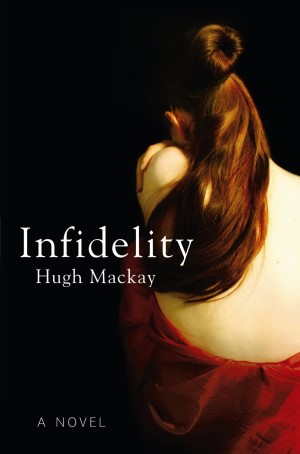When the news of Israel’s defeat reached Shiloh, Eli heard that the prophesied sign had been fulfilled: both his sons had died on the same day. Although this no doubt upset him, what was really distressing was that the ark—for which he was responsible—had been captured. Upon hearing this news he fell backwards off his seat, broke his neck and died. The narrator tells us that the reason was that he was old and—despite his advanced age—“heavy” (v. 18). His death, and that of his sons (all on the one day—verse 12), signalled the end of an era. He had judged Israel for forty years.
Eli was fat (GNB), heavy (NRSV; ESV). The word used here is kabod, which can indeed mean heavy or plump. It also has connotations of being prosperous—one is heavy because one is wealthy enough to eat a great deal of food. Colloquially, we might speak analogically of those who are “heavy-weights,” speaking of their authority or influence: they are a “weighty” person to be reckoned with. A similar manner of speaking developed in the Hebrew language where the word kabod could refer not merely to one who was literally heavy, but who metaphorically, was heavy in terms of their influence and authority. Eli was both. Significantly, however, the word came to be applied to God as the one who is ultimately “weighty” in his sovereignty and power. Kabod is the term used to refer to the divine glory, the visible manifestation of God’s “heaviness,” presence and power. This glory was directly associated with the ark when Moses completed its construction in Exodus 40:21, 33-34:
And he brought the ark into the tabernacle…So Moses finished the work. Then the cloud covered the tent of meeting, and the glory of the Lord filled the tabernacle. And Moses was not able to enter the tent of meeting because the cloud settled on it, and the glory of the Lord filled the tabernacle.
God would dwell with his people, meet with them, and speak to them from the ark (Exodus 25:8, 22), and they and it would be sanctified by his glory (29:43).
The final episode of 1 Samuel 4 is the tragic tale of the birth of a child, born an orphan, and named by his dying mother as Ichabod, meaning that “the glory has departed from Israel.” Perhaps there is some ambiguity here. Certainly the loss of the ark signifies the loss of the divine glory. But perhaps there is also a sense of human bitterness here: the loss of the glory of Eli’s house, of her station in life, of the hopes and dreams that she and all her family had harboured thus far. This child, who hitherto had been the object of fond hopes, perhaps even of the continuation of the dynasty—“do not be afraid for you have born a son!”—is now i-kabod, “no glory.”
Blind Eli had lacked insight into the true nature of things. In place of the divine glory and presence, he was satisfied with his own weighty presence. In place of honouring the worship of God he honoured his sons. He presumed that his position was one of privilege rather than faithful service. He did according to what was in his own heart rather than that which was in God’s heart and mind (2:35).
In their rise, Eli and his house had been guilty of overreach, or what the ancient Greeks called hubris: by failing to discipline his sons, Eli has acted as if the familial claim to ark guardianship was a given. … Hubris is a lack of balance, because the proud man overestimates his place in the scheme of things. Balance in the moral order is restored by retribution. “Like Herodotus, the Old Testament exhibits a dominant concern with the issue of divine retribution for unlawful acts as a fundamental principle of historical causation. Human responsibility and divine justice are frequently stated themes. … For both, history is theodicy” (Murphy, 40, citing Van Seters, In Search of History: Historiography in the Ancient World and the Origins of Biblical History (New Haven: Yale, 1983), 39-40).
Murphy suggests—and suggests that the Old Testament itself suggests—that there is a kind of historical moral providence in which history is the sphere in which divine moral accounting is played out and established. This is not merely an impersonal “you-reap-what-you-sow” principle at work. Although the rise and fall of nations, and of individual leaders in this case, is played out in terms of historical causation and agency, behind this historical procession God is personally active, working to holding historical figures to account. Murphy is not suggesting that God is the active causative agent of all that occurs, but that God is active in judgement and moral accountability. Van Seters may be correct to assert that for both the ancient Greeks and Hebrews “history is theodicy,” but from a biblical point of view it is not sufficient to limit theodicy to history: it is too vague, too “after the event,” too indirect to provide the kind of justice humanity really cries out for. An ultimate accounting, a final judgement, remains necessary, as both Jesus and the Bible testify. Nevertheless, the story of Eli reminds us that God calls his people, and especially his leaders, to covenantal faithfulness, and that he will hold them accountable for this. The implications for contemporary Christian leaders are obvious.



